2021 U.K. ecommerce VAT overhaul
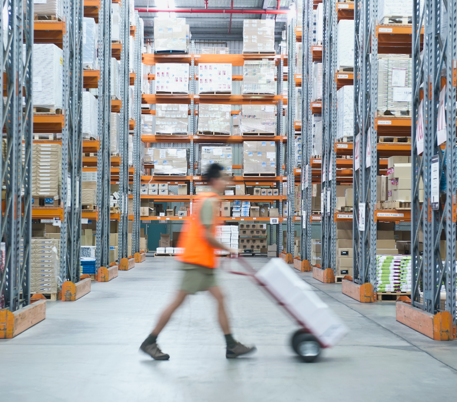
Avalara can assist you with how to manage your tax obligations and keep your goods moving
Whether you are selling into the U.K. or EU, the new rules mean complex changes, which, if not managed carefully, could result in tax fines and goods blocked at customs. With the addition of VAT and customs complexities for ecommerce businesses as a result of Brexit, 2021 is set to be a year of hostile online trading in the U.K. and with the EU.
Our fully automated VAT determination and report solutions will take care of all new calculations and filing obligations for parties as a result of the U.K. ecommerce changes and Brexit. Contact us to take the sting out of 2021 and keep you trading.

Avalara can assist you with how to manage your tax obligations and keep your goods moving
Whether you are selling into the U.K. or EU, the new rules mean complex changes, which, if not managed carefully, could result in tax fines and goods blocked at customs. With the addition of VAT and customs complexities for ecommerce businesses as a result of Brexit, 2021 is set to be a year of hostile online trading in the U.K. and with the EU.
Our fully automated VAT determination and report solutions will take care of all new calculations and filing obligations for parties as a result of the U.K. ecommerce changes and Brexit. Contact us to take the sting out of 2021 and keep you trading.
Goods located outside the U.K. at time of online sale
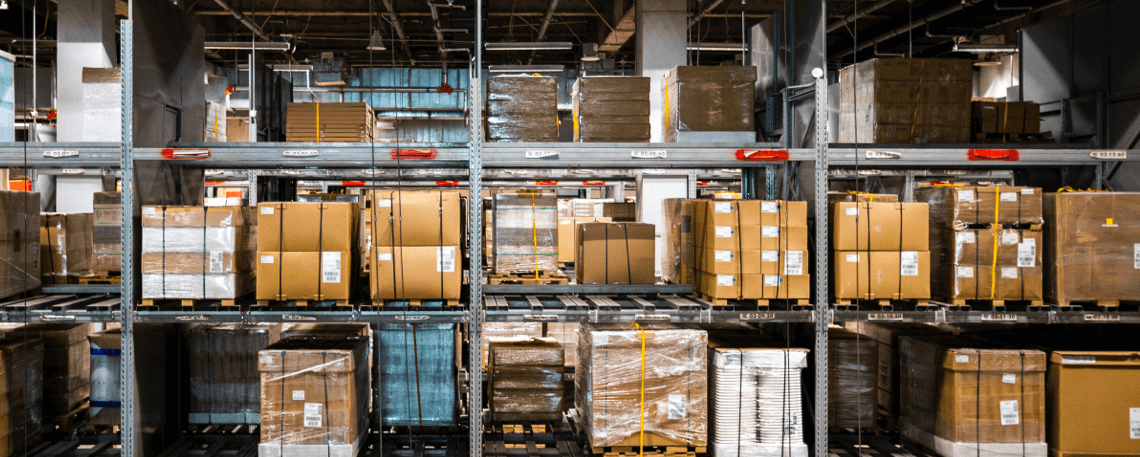
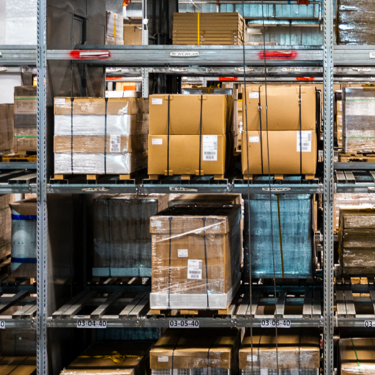
Beginning in 2021, HMRC has implemented separate processes and charging of VAT on imports not exceeding £135 in value and on those above £135 in value.
Imports not exceeding £135 in value
Imported goods consignments (i.e., multiple goods in a single package) passing through the U.K. customs border and not exceeding £135 (roughly $180 USD at the time of publication) are subject to a new VAT regime. This regime has replaced the previous one in which import VAT collection occurred either at clearance by customs, or by way of customer import payments to delivery agents.
For these transactions, U.K. and overseas online sellers must charge supply VAT (or “sales VAT”) through their website checkout. Alternatively, if selling goods through a “facilitating” OMP (see OMPs section), the facilitating OMP will charge the VAT in their own name as the deemed supplier.
The VAT is calculated on sales price. The seller, or OMP, must provide a U.K. VAT invoice that should accompany the consignment through customs. This may be a simplified invoice.
The collected supply VAT is then remitted through a regular U.K. VAT return by the seller or deemed supplier OMP. The goods must be marked or electronically tagged on the customs declarations as “VAT paid at checkout” to avoid double import taxation at the border by customs.
The £135 threshold is based on the intrinsic value of the goods and does not include separate transport or insurance of other import taxes. The £135 threshold is also the U.K. customs exemption threshold.
If the customer is a U.K. VAT-registered business, they may provide the seller or OMP with their VAT number for zero-rating. The U.K. customer will then use the reverse charge mechanism to report the amount of VAT due. Otherwise, sales VAT should be charged.
Excise goods and gifts up to £39 are excluded from this regime.
Imports exceeding £135 in value
Imported goods above £135 in value and consignments of multiple goods with a combined intrinsic value above £135 will use the existing import VAT procedures. This means the seller may pay the import VAT (and duties) on clearance, then reclaim the VAT amount if they have a U.K. VAT number. Alternatively, the seller may opt to have their customer pay VAT at customs or to the delivery agent.
Overseas online sellers must charge supply VAT through their website checkout for transactions less than £135
The collected supply VAT is then remitted through a regular U.K. VAT return by the seller
Imports exceeding £135 use the previous import VAT procedures
Goods located inside the U.K. at time of a B2C sale by an overseas seller


If goods are already in the U.K. when the online sale is undertaken, the rules for overseas (non-U.K. resident) sellers have changed.
Overseas seller operating via OMP
When a non-U.K. seller sells to a U.K. consumer via a facilitating online marketplace (OMP) and the goods are already in the U.K. prior to the sale, then the OMP becomes the “deemed supplier.” This applies to any value of goods. This does not apply to U.K. resident sellers.
The non-U.K. seller will have already paid import VAT and any duties to clear the goods into the U.K. prior to the sale. Or, they may have paid input VAT if the goods were purchased domestically in the U.K. In both cases, this VAT is reclaimable through a U.K. VAT return.
To affect the deemed supplier transaction, the non-U.K. seller will first sell the goods as a zero-rated supply to the OMP with the right to deduct VAT. This deduction can be declared in the OMP’s U.K. VAT return in Box 6. The OMP will then sell goods to the consumer at regular U.K. VAT rates. B2B transactions are excluded from these new rules, and a U.K. VAT number will serve as evidence of the B2B transaction. Normal U.K. VAT will apply.
Overseas seller operating on their own website
Where there is no facilitating OMP in the transaction, the previous rules will apply. The overseas seller must be U.K. VAT-registered and charge U.K. VAT to businesses or consumers.
Time of supply for ecommerce 2021
For goods supplied over the course of implementation, the new rules apply to goods with a “tax point” or “time of supply” on or after January 1, 2021. In the U.K., the time of supply is the earliest of: payment, invoice, or delivery of goods. For example, if payment was made on December 31, 2020, but goods were not dispatched until January 1, 2021, then the time of supply is before the new rules took effect and the new rules would not apply to the transaction.
VAT is reclaimable through a U.K. VAT return when selling
via OMP
B2B transactions are excluded from these new rules
Facilitating online marketplaces


What is a facilitating OMP?
OMPs are electronic interfaces (website or mobile application), such as marketplaces, platforms, portals, or similar, that facilitate the sale of goods to customers. “Facilitating” means when any of the following conditions are met:
The general terms and conditions of the sale have been set
The charge to the customer for payment has been authorized
The OMP has been involved in ordering or delivering the goods
The general terms and conditions of the sale have been set
The charge to the customer for payment has been authorized
The OMP has been involved in ordering or delivering the goods
A business that only provides one of the following will not be regarded as an OMP:
The processing of payments in relation to the supply of goods
The listing or advertising of goods
The redirecting or transferring of customers to other electronic interfaces where goods are offered for sale — without any further intervention in the supply
The processing of payments in relation to the supply of goods
The listing or advertising of goods
The redirecting or transferring of customers to other electronic interfaces where goods are offered for sale — without any further intervention in the supply
Information requirements for OMPs to determine VAT
As a result of the new obligations for OMPs to charge and collect VAT, they need to collect several pieces of data for correct calculations. These include:
The “ship from” country, i.e., the country where the seller’s goods were at the time of sale
If an import to the U.K., the intrinsic value of the goods consigned to determine if the goods do or do not exceed £135
If the goods are already located in the U.K., data on whether the seller is a resident or non-resident of the U.K.
Whether the customer is a VAT-registered business entitled to zero-rating on imported goods not exceeding £135; in the case of a non-U.K. seller, a domestic sale of any value should not be a “deemed supplier” transaction
Nature of the goods imported to determine the correct standard: reduced or zero-rated VAT treatment
The “ship from” country, i.e., the country where the seller’s goods were at the time of sale
If an import to the U.K., the intrinsic value of the goods consigned to determine if the goods do or do not exceed £135
If the goods are already located in the U.K., data on whether the seller is a resident or non-resident of the U.K.
Whether the customer is a VAT-registered business entitled to zero-rating on imported goods not exceeding £135; in the case of a non-U.K. seller, a domestic sale of any value should not be a “deemed supplier” transaction
Nature of the goods imported to determine the correct standard: reduced or zero-rated VAT treatment

OMPs need to collect several pieces of data for correct calculations
OMPs can be held liable for under-declared VAT on their deemed supplier transactions
Online marketplace VAT liabilities
OMPs could potentially be held liable for under-declared VAT on their deemed supplier transactions so the above information must be accurate.
OMPs are expected to take all reasonable steps within their power to ensure that the correct VAT is charged. They are expected to undertake objectively reasonable and proportionate due diligence and consider all the information available to them in determining the correct VAT treatment.
OMP record keeping
Online marketplaces are required to retain electronic records supporting all transactions for at least six years. This covers both transactions where they have acted as the facilitating deemed supplier and transactions where they have not (and the seller has been responsible for the VAT).
Brexit ecommerce nine-point checklist to avoid tax costs and frustrated customers
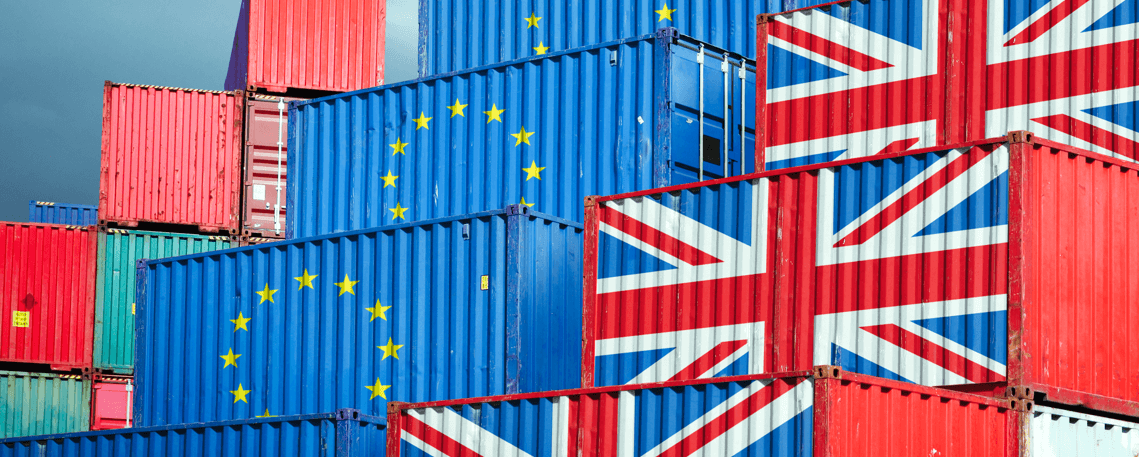
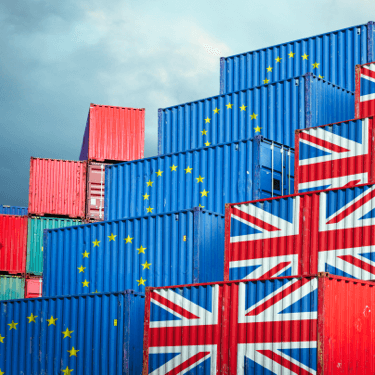
Avalara’s basic nine-point checklist for sellers doing business in the U.K. and EU reveals the most important steps for them to take now. Contact Avalara for details on how to avoid having your goods blocked at customs, frustrated customers, marketplaces strike you off their platforms, and fines from the U.K. or EU tax authorities.
Use our checklist to understand potential obligations and risks for your business and the actions you need to take to continue selling.
VAT
Selling into the EU
If you sell goods to EU customers under any country’s VAT distance-selling threshold (€35k or €100k), then you need to VAT-register in each country.
Selling into the U.K.
You need a U.K. VAT registration.
Selling into the EU
Under local country rules, you may need to appoint a special VAT agent or a fiscal representative. This applies in up to 17 EU states.
Selling into the U.K.
The U.K. does not require you to appoint a fiscal representative.
Selling into the EU
You must choose who pays the import VAT and review your delivery terms (“Incoterms”) for your customer’s benefit. Some EU states offer deferred import VAT schemes to help businesses avoid cash flow losses.
Selling into the U.K.
For sales below £135, you have to charge import VAT at checkout and remit VAT payment using a U.K. VAT return. Otherwise, a U.K.-postponed VAT scheme is available through the right application.
Selling into the EU
You must register and file with each EU27 member state.
Selling into the U.K.
You need a U.K. VAT registration to declare your sales to U.K. consumers.
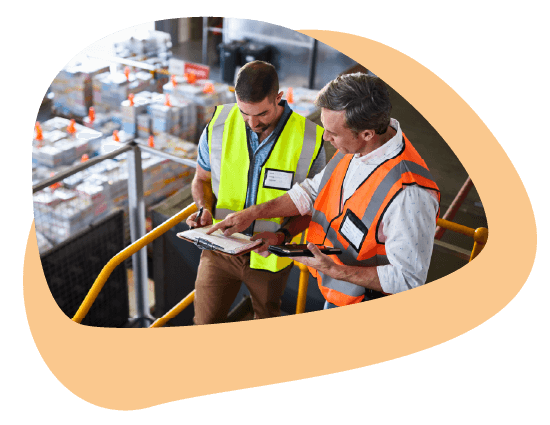
Customs
Without an Economic Operator Registration Identification (EORI) number, you will not be able to clear goods with customs and send them to your EU or U.K. customers. You need both a U.K. VAT registration number and an EU EORI number if you’re selling into the U.K. and EU.
To avoid upset customers and having goods held at customs, you may need to rethink your delivery terms. These clarify who is responsible for ensuring customs clearance and paying any tariffs and import VAT.
You will have to complete customs declarations on goods for U.K. and EU customs if you sell in both locations.
The customs declaration will need all goods to have a standardized commodity identification code (HS code). If you get this code wrong, you may under- or overpay tariffs or have your goods blocked by customs.
Tariff levies will apply and must be paid on most goods moving into the U.K. and EU. You need to know how to calculate tariffs to fairly charge your customer. Or, you can have your customer pay them at customs — but that may be an unpleasant surprise.
International tax solutions
Discover the wide range of tax, customs, and duty solutions from Avalara for selling into international markets.
International tax solutions
Discover the wide range of tax, customs, and duty solutions from Avalara for selling into international markets.














